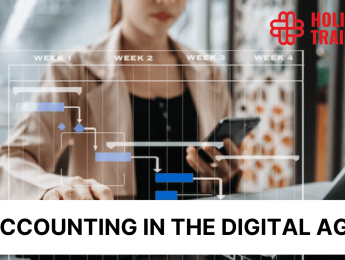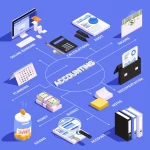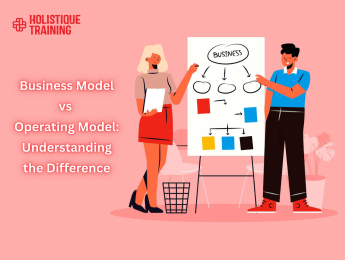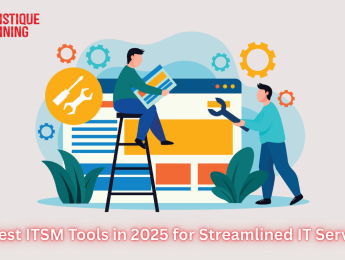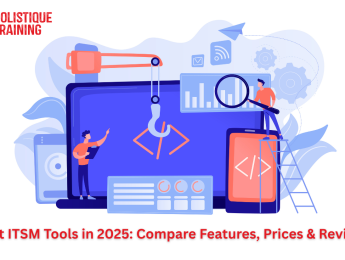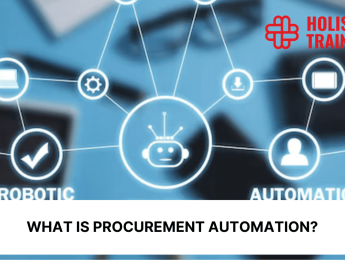Introduction
In the world of finance and business, accounting has always played a critical role. Traditionally known for its meticulous record-keeping and number-crunching, the accounting profession has witnessed a seismic shift with the advent of advanced technology. Today, accountants find themselves embracing cutting-edge technologies that not only streamline their processes but also redefine their roles within organisations. In this blog post, we will explore how technology is impacting the accounting major, discuss the emergence of transformative accounting technologies, envision the future role of accountants, and provide actionable insights to stay ahead of the advancements.
How Technology Is Changing the Accounting Profession
The integration of technology into the accounting profession has been nothing short of revolutionary. Manual bookkeeping, once the cornerstone of the profession, is rapidly becoming obsolete as automated accounting systems take centre stage. With cloud-based solutions and sophisticated software, tasks that once took hours or days are now completed in a matter of minutes.
Moreover, advanced technology has reduced the likelihood of human error, ensuring greater accuracy and reliability in financial reporting. Accountants can now access real-time data and generate reports on-demand, enabling more informed decision-making by business leaders. Additionally, the use of Artificial Intelligence (AI) and Machine Learning (ML) algorithms has enabled accountants to predict financial trends, identify anomalies, and even detect fraud more efficiently.
Emerging Accounting Technologies
As we delve deeper into the realm of emerging accounting technologies, let's explore how these transformative advancements are reshaping the profession and empowering accountants to adapt to the evolving landscape.
i) Cloud Accounting Systems
Cloud-based accounting solutions have emerged as the linchpin of modern accounting practices, radically transforming the way financial data is managed. These platforms provide accountants and businesses with the flexibility to access financial data from anywhere with an internet connection, fostering seamless collaboration and communication.
One of the standout advantages of cloud accounting systems is accessibility. Accountants can now work remotely, accessing critical financial information at any time and from any location. This flexibility not only enhances work-life balance but also ensures that financial professionals can respond promptly to evolving business needs.
Moreover, the collaboration capabilities inherent in cloud platforms have streamlined communication within accounting teams and between accountants and other departments. In fact, statistics show that 53% of accountants leverage cloud-based technology to elevate project management capabilities and enhance communication efficiency. Real-time collaboration reduces delays in decision-making processes, facilitating a more agile and responsive financial environment.
In addition, according to Flexi, companies relying solely on cloud accounting not only experience a fivefold increase in client acquisition but also achieve an impressive 15 percent year-over-year revenue growth.
ii) AI and ML in Accounting
The integration of Artificial Intelligence (AI) and Machine Learning (ML) represents a seismic shift in the way accountants approach their work. These technologies have transcended routine automation tasks, venturing into realms previously thought to be exclusively within the purview of human expertise.
AI and ML algorithms, for instance, can analyse vast datasets with remarkable speed and accuracy. This analytical prowess empowers accountants to extract meaningful insights from intricate financial information, identify patterns, and make data-driven decisions. From data entry and expense categorisation to tax preparation, AI and ML have become indispensable tools, augmenting efficiency and accuracy in accounting processes.
iii) Blockchain for Enhanced Security
Blockchain technology has transcended its origins in cryptocurrency to revolutionise the way financial transactions are recorded and verified. Its immutable and decentralised nature ensures a higher level of security and transparency in financial records, thereby minimising the risk of fraud and errors.
In the context of accounting, blockchain technology offers a tamper-proof ledger of financial transactions. This not only enhances the integrity of financial data but also expedites the auditing process. The decentralised nature of blockchain ensures that once a transaction is recorded, it cannot be altered, providing a reliable and transparent audit trail.
iv) Robotic Process Automation (RPA)
Robotic Process Automation (RPA) has emerged as a liberating force for accountants, enabling them to automate repetitive and time-consuming tasks. This technology allows accountants to redirect their focus from mundane activities like invoice processing and data validation to more strategic and value-added responsibilities.
By automating routine tasks, accountants can enhance efficiency and productivity. RPA systems, for example, can rapidly process large volumes of data with a reduced margin of error, freeing up valuable time for accountants to engage in critical thinking, analysis, and decision-making processes.
In summary, the emerging accounting technologies of cloud-based systems, AI and ML, blockchain, and RPA are not merely incremental improvements but represent a paradigm shift in the profession. These technologies are not replacing accountants but empowering them to work more efficiently, strategically, and securely in the rapidly evolving digital landscape. As the accounting major continues to embrace these innovations, the potential for even more transformative changes is on the horizon.
The Future Role of Accountants
As technology continues to disrupt the accounting landscape, the role of accountants is evolving to become more dynamic and strategic. While routine tasks are delegated to automated systems, accountants are stepping into advisory roles, offering data-driven insights, and acting as strategic partners to business leaders. According to an article published by Balancing Everything, a significant 57% of accountants consider technology literacy as the foremost essential skill for prospective employees in the field's future. Here’s what the future holds for the role of accountants:
a. Data Analysts and Forecasters
In the digital age, accountants are transcending traditional boundaries, emerging as adept data analysts and forecasters. With access to real-time financial data and the ability to analyse vast datasets, accountants are becoming pivotal in unravelling intricate patterns and trends. This shift allows them to provide invaluable insights that guide businesses in making informed decisions and capitalising on emerging opportunities.
The evolution into data analysts involves mastering not only the technical aspects of data interpretation but also the ability to translate complex data into actionable insights for stakeholders. Accountants are becoming storytellers, presenting narratives that go beyond numbers, enriching the decision-making processes of businesses.
b. Trusted Advisors
In an era where businesses face increasingly complex financial challenges, accountants are assuming the role of trusted advisors. Their expertise in financial matters, combined with an in-depth understanding of the organisation, positions them uniquely to offer customised solutions and strategies.
The trusted advisor role involves more than just providing financial advice; it requires a holistic understanding of the business environment. Accountants are expected to comprehend the intricacies of various departments, anticipate challenges, and contribute strategic insights that extend beyond traditional accounting functions.
c. Compliance and Risk Management Experts
As regulatory landscapes continually evolve, compliance and risk management have become critical facets of business operations. Accountants are now playing a pivotal role in ensuring that businesses stay up-to-date with changing regulations and adhere to legal requirements.
The future accountant is not just a number cruncher but a compliance and risk management expert. Navigating through intricate regulatory frameworks, accountants contribute to creating robust compliance strategies, minimising financial risks, and safeguarding the integrity of financial operations.
d. Technological Integrators
With the proliferation of accounting technologies, accountants are becoming adept at integrating and optimising these tools to meet business needs effectively. Their ability to leverage technology ensures streamlined processes and improved financial management.
Being technological integrators involves staying abreast of the latest advancements and understanding how these technologies align with business objectives. Accountants are not just users of technology but strategic drivers in its implementation, ensuring that the adoption of new tools enhances overall business efficiency.
In essence, the future role of accountants goes beyond traditional bookkeeping and extends into realms that demand a combination of analytical acumen, strategic thinking, and technological proficiency. As businesses face unprecedented challenges and opportunities, accountants are poised to be instrumental in steering organisations toward financial success in the digital age. The shift from being mere record-keepers to strategic advisors reflects the adaptability and resilience of the accounting profession in the face of technological disruption.
Table 1: Skills in demand for future accountants
Essential Skills | Relevance in Future Accounting | Key Attributes |
Data Analytics | High | Interpretation of complex financial data |
Communication | Crucial | Effective presentation of insights |
Strategic Thinking | Vital | Nuanced decision-making in dynamic contexts |
Technological Literacy | Essential | Integration of advanced accounting systems |
Compliance Knowledge | Critical | Adherence to evolving regulatory frameworks |
What You Need to Do Now to Keep Up with the Advancements
As we look ahead to the future of accounting in the era of advanced technology, it's crucial for accountants to proactively prepare themselves for the changing landscape. Let's now discuss actionable steps that professionals can take to stay ahead of the advancements and remain at the forefront of the accounting major:
a. Embrace Continuous Learning
The pace at which technology is evolving demands a commitment to continuous learning. Accountants should actively seek out opportunities to expand their knowledge and skill set. This involves enrolling in workshops, participating in webinars, and undertaking professional courses dedicated to the latest advancements in accounting technologies.
Continuous learning is not just about keeping up with software updates; it's about understanding the broader implications of technological shifts. Accountants should delve into the theoretical underpinnings of emerging technologies, ensuring a comprehensive understanding that extends beyond the practical applications.
This commitment to ongoing education positions accountants as proactive contributors to the evolving digital landscape. By staying informed about the latest developments, professionals can anticipate changes, adapt quickly, and remain valuable assets in an ever-changing field.
b. Master Data Analytics
In the data-driven era, mastering data analytics is not just a skill; it's a necessity for thriving in the accounting landscape of the future. Accountants should familiarise themselves with advanced data visualisation tools and techniques, empowering them to derive meaningful insights from financial data.
Being proficient in data analytics involves more than just crunching numbers. Accountants should develop the ability to interpret complex data sets, identify trends, and communicate these findings effectively to diverse stakeholders. This skill set transforms accountants from number-crunchers into strategic advisors who can guide businesses based on data-driven insights.
The integration of data analytics into the accounting profession requires a mindset shift. Accountants need to view data not just as a byproduct of transactions but as a strategic asset that can drive informed decision-making and contribute to organisational success.
c. Develop Soft Skills
While technological proficiency is essential, the importance of soft skills cannot be overstated. Effective communication, problem-solving, and critical thinking are attributes that set accountants apart as valued advisors in the digital age.
Developing soft skills is a holistic approach to professional growth. It involves cultivating the ability to convey complex financial insights in a comprehensible manner, fostering collaboration within cross-functional teams, and navigating the nuanced challenges of a rapidly evolving business environment.
Soft skills are the bridge between technological expertise and effective implementation. Accountants who can articulate the implications of data analytics, compliance strategies, and financial forecasts in a clear and compelling manner become instrumental in driving organisational change and success.
d. Embrace Automation
Rather than fearing automation, accountants should embrace it as a powerful tool for enhancing efficiency and effectiveness. Automation allows professionals to offload routine tasks to systems, freeing up time for more strategic and creative thinking.
Embracing automation involves not only learning how to use automated tools but also understanding how to integrate them seamlessly into broader business processes. Accountants should actively seek opportunities to identify tasks that can be automated, thereby optimising workflows and allowing them to focus on activities that require a human touch, such as critical thinking and strategic decision-making.
Automation is not a replacement for accountants; it's a catalyst for their evolution. By leveraging automation, professionals can elevate their roles from transactional to strategic, positioning themselves as key contributors to organisational success in the digital age.
In short, navigating the advancements in the accounting major requires a proactive and multifaceted approach. Embracing continuous learning, mastering data analytics, developing soft skills, and embracing automation are not just recommendations; they are imperatives for staying relevant and valuable in a rapidly changing landscape.
Navigating Challenges: Accountants in the Era of Rapid Technological Advancements
As the accounting profession undergoes a digital transformation propelled by rapid technological advancements, accountants are not only redefining their roles but also encountering a host of challenges. The integration of cutting-edge technologies brings with it a set of hurdles that demand thoughtful consideration and strategic navigation.
a. Adapting to Technological Changes
One of the primary challenges faced by accountants is the need to adapt to constant technological changes. The rapid evolution of accounting technologies, from cloud-based systems to AI and blockchain, requires professionals to stay vigilant and continuously update their skill sets. The struggle to keep pace with these changes can be overwhelming, particularly for those who have been accustomed to more traditional accounting methods.
To overcome this challenge, accountants must invest time in ongoing training and education. Workshops, seminars, and professional courses become not just avenues for skill development but essential components of staying relevant in an industry characterised by relentless technological innovation.
b. Ensuring Data Security
The increased reliance on digital platforms for accounting tasks brings forth the critical concern of data security. With vast amounts of financial information being stored and processed electronically, accountants face the challenge of safeguarding sensitive data from cyber threats and breaches.
Blockchain technology, while enhancing transparency, also poses challenges in terms of ensuring the security of transactions. As accountants transition to more decentralised and interconnected systems, understanding and mitigating cybersecurity risks become paramount.
Addressing this challenge involves not only investing in robust cybersecurity measures but also fostering a culture of awareness within accounting teams. Accountants need to be well-versed in data security protocols, recognising the potential vulnerabilities in the systems they use, and adopting proactive strategies to mitigate risks.
c. Balancing Automation and Human Expertise
While automation brings efficiency and accuracy to accounting processes, it also introduces the challenge of balancing automation with the irreplaceable human touch. Accountants must navigate the delicate equilibrium between leveraging technology for routine tasks and preserving the value of human expertise for strategic decision-making.
The fear of job displacement due to automation is a valid concern that accountants grapple with. However, it is crucial to recognise that automation is a tool that should enhance, not replace, the accountant's role. The challenge lies in redefining the scope of work to emphasise tasks that require critical thinking, creativity, and a nuanced understanding of business contexts.
d. Managing Resistance to Change
Another challenge faced by accountants in the wake of technological advancements is managing resistance to change within organisations. Traditional accounting practices may be deeply ingrained, and professionals may be hesitant to embrace new technologies, perceiving them as disruptive or threatening.
Overcoming this challenge involves effective change management strategies. Organisations need to invest in comprehensive training programs, communicate the benefits of technological advancements clearly, and create a culture that encourages openness to innovation. Accountants, in turn, must cultivate a mindset that views change as an opportunity for growth rather than a threat to established norms.
e. Ensuring Ethical Use of Technology
As accountants adopt advanced technologies, the ethical use of data and technology becomes a critical concern. The potential for biassed algorithms, privacy violations, and the misuse of financial information necessitates a heightened awareness of ethical considerations in the digital realm.
Accountants must be vigilant in upholding ethical standards in their use of technology, ensuring that data is handled responsibly and transparently. This challenge requires the establishment of ethical guidelines within organisations, along with ongoing education on the ethical implications of technological advancements in accounting.
f. Costs and Implementation Challenges
Implementing new technologies often comes with associated costs and implementation challenges. Cloud-based accounting systems, AI, and blockchain technologies require significant initial investments, both in terms of financial resources and time.
Accountants need to navigate the complexities of integrating these technologies into existing workflows. This involves not only addressing technical implementation challenges but also managing the human side of change. Resistance from team members, coupled with the need for comprehensive training, adds layers of complexity to the adoption of new technologies.
To tackle these challenges, organisations should conduct thorough cost-benefit analyses before embracing new technologies. Additionally, a phased and well-communicated implementation plan can help mitigate disruptions and facilitate a smoother transition.
As accountants journey through the era of rapid technological advancements, acknowledging and addressing challenges is paramount. Adapting to change, ensuring data security, balancing automation with human expertise, managing resistance, upholding ethical standards, and navigating implementation complexities are all part of the evolving landscape.
By actively engaging with these challenges, accountants can not only overcome hurdles but also emerge as resilient professionals who are well-equipped to thrive in a dynamic and technologically-driven accounting major. The challenges may be formidable, but they also present opportunities for growth, innovation, and the continued evolution of the accounting profession.
Conclusion
Advanced technology is revolutionising the accounting major by streamlining processes, enhancing accuracy, and empowering accountants to take on more strategic roles within organisations. The emergence of cloud-based accounting systems, AI, ML, and blockchain has transformed the profession, leading to greater efficiency and transparency. As the role of accountants evolves to become more data-driven and strategic, continuous learning and embracing automation are essential to stay ahead of the advancements. By embracing these changes, accountants can become invaluable assets, guiding businesses towards financial success in the digital age.
As you navigate the transformative changes, consider empowering yourself with the cutting-edge knowledge and skills essential for the future of finance. Elevate your career with our ‘MBA in Accounting and Finance’ course, where we delve deep into the intersection of technology and financial expertise, preparing you not just to adapt but to lead in this era of innovation and progress. Seize the opportunity to not only stay relevant but to excel with our comprehensive training programme. Your journey towards becoming a strategic, tech-savvy accountant starts here. Enrol today and be at the forefront of shaping the future of accounting!


